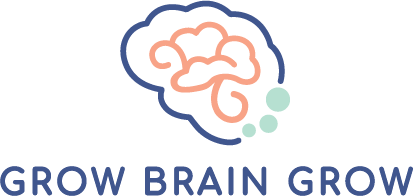What is SEL (Social-Emotional Learning)?
Social-emotional learning (SEL) is a life-long learning process and skill base that neurologically wires brains to support successful learning. The developmental skills learned through SEL lay a foundation for future awareness, relationships and academic achievement.
Without a strong foundation of SEL, students have an increasingly difficult time navigating their world. The skills learned through SEL help open students' ability to learn and grow as individuals and within a community. Every thought, action or reaction we have registers as an emotion in our bodies and brains. SEL helps students process and integrate these responses into their learning.
What are the Benefits of SEL?
There are significant benefits to providing SEL programming in schools, including reducing stress and increasing positive attitudes towards school and achievement in schools by an average of 11 percentile points (Durlak, et al., 2011). When students develop social-emotional learning skills, they create a safe learning environment that helps not only themselves but those learning with them. Strong SEL skill acquisition has been shown to enhance students' ability to succeed in school and future careers and life. SEL also offers other benefits such as increased kindness, empathy, and resilience in the classroom.
While it may seem as if SEL would be intuitive, these skills need to be learned, nurtured and supported through observation and rich learning experiences. Social-emotional learning should be part of every child’s daily educational experience to support healthy brain development.
SEL Aligned with Casel Standards
The Collaborative for Academic, Social, and Emotional Learning (CASEL) is a trusted source for knowledge about high-quality, evidence-based social and emotional learning (SEL). According to CASEL standards, there are five key skills of social-emotional learning, and programming is fully aligned with them.
Self-awareness:
The abilities to understand one’s own emotions, thoughts, and values and how they influence behavior across contexts. This includes capacities to recognize one’s strengths and limitations with a well-grounded sense of confidence and purpose.
Self-management:
The abilities to manage one’s emotions, thoughts, and behaviors effectively in different situations and to achieve goals and aspirations. This includes the capacities to delay gratification, manage stress, and feel motivation and agency to accomplish personal and collective goals.
Responsible decision-making:
The abilities to make caring and constructive choices about personal behavior and social interactions across diverse situations. This includes the capacities to consider ethical standards and safety concerns, and to evaluate the benefits and consequences of various actions for personal, social, and collective well-being.
Relationship skills:
The abilities to establish and maintain healthy and supportive relationships and to effectively navigate settings with diverse individuals and groups. This includes the capacities to communicate clearly, listen actively, cooperate, work collaboratively to problem solve and negotiate conflict constructively, navigate settings with differing social and cultural demands and opportunities, provide leadership, and seek or offer help when needed.
Social awareness:
The abilities to understand the perspectives of and empathize with others, including those from diverse backgrounds, cultures, and contexts. This includes the capacities to feel compassion for others, understand broader historical and social norms for behavior in different settings, and recognize family, school, and community resources and supports.
Our Approach to SEL Includes Teaching Kids About Their Brains
One of the best ways to teach how to learn, grow and interact with themselves and their world is by teaching kids about the brain, so that’s what we do. Neuroscience is often viewed as the upper level of academics; however, teaching younger students the importance and function of their brain is incredibly beneficial in supporting their present and future social, emotional and academic endeavors. We accomplish this by integrating engaging storytelling and character-based learning that all students can understand and relate to. Learn more about how and why we use brain awareness in our programming.

